What to do with an old duvet — clever ways to reuse it at home or recycle it
5 environmentally friendly ways to repurpose your duvet and how to dispose of it properly if you can’t

Lauren Bradbury
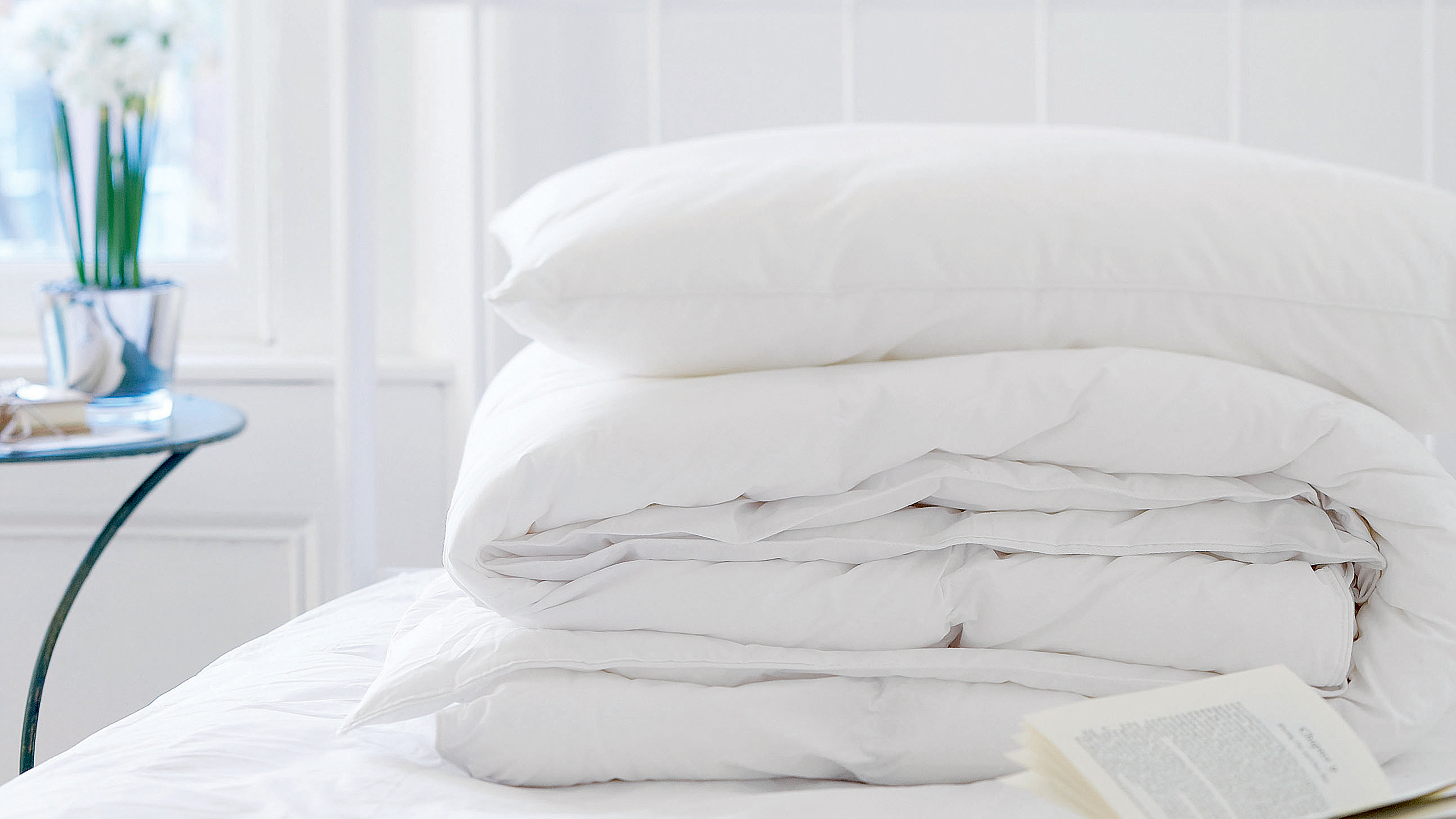
Sign up to our newsletter for style inspiration, real homes, project and garden advice and shopping know-how
You are now subscribed
Your newsletter sign-up was successful
If you’re scratching your head and wondering what to do with an old duvet, we don’t blame you. After all, used duvets can be tricky to dispose of, with many rules, regulations, and requirements surrounding the disposal of these bulky items. But there are still many ways to repurpose or recycle old duvets if you know how.
Although we’d love to say that the best duvets will last forever, the reality is that they generally have a lifespan of around five years - potentially a bit more or less depending on the quality of the duvet and how often it's used and maintained. And while you may be inclined to just throw an old duvet in the bin, this will lead to unnecessary landfill waste.
So, if you want to sleep better (both literally and metaphorically) knowing that your old duvet has gone to the right place, these are the ways to repurpose your old duvet around your home - and how to dispose of your old duvet properly if you can’t.
How to reuse an old duvet
1. Save it for your next house move
You probably don’t need us to tell you that moving house is expensive. But one of the best ways to save money when moving house and re-use an old duvet is by swapping your bubble wrap for your old bedding.
Rachel Marshall, Brand Manager at Bensons for Beds, agrees. She says, 'One of the best uses for an old duvet is to keep it aside when you move home. Old duvets make great padding for putting around furniture or fragile items.'
This way, you won't have to buy protective covers or extra blankets to ensure safe passage for your items. And if you know you’re going to be moving soon but are not sure of the date just yet, you can store your old duvet in the loft, preferably in some sort of vacuum bag - like these Argos Home Pack of 2 Jumbo Vacuum Storage Bag - or use your under stairs storage ideas if you have room.
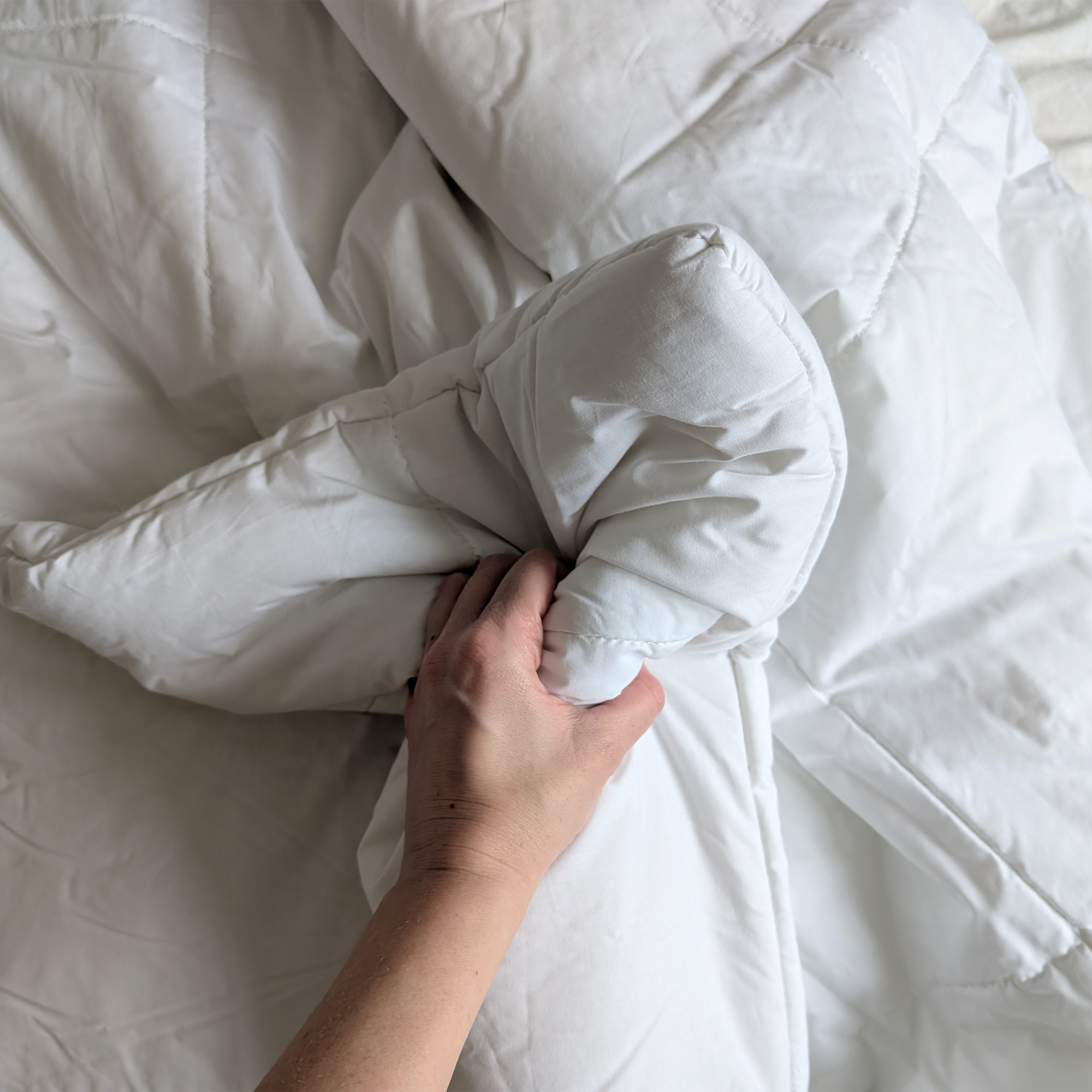
2. Feed your garden
You can’t bring a garden idea to life without feeding your plants, and a compost heap is one of the best ways to give them the nutrients they need. But did you know that you can use an old duvet to do the same?
Sign up to our newsletter for style inspiration, real homes, project and garden advice and shopping know-how
Of course, there are many things that you shouldn’t add to a compost pile, and certain duvets are included in that list. Rachel says, ‘While a duvet may eventually break down over time, they can release harmful chemicals produced by the synthetic materials they are made from, which can be harmful for the environment.’
However, this isn’t the case for all duvets, as the filling of the duvet ultimately determines its usability. Andrew Seed, Managing Director at The Odd Company, explains, ‘If you have a feather duvet, the feathers can be composted, providing nutrient-rich material for your garden.’
You can even cut up your old pure wool duvet and place it directly into the soil, where it will naturally decompose over time. Just be warned that you can only repurpose the internal material, not the duvet casing.
3. Get crafty with the sewing machine
If you have a sewing machine lying around - or are pretty handy with a needle and thread - you could also turn an old duvet into a new decorative addition to your home. 'If you're feeling creative you could use your old duvet for the filling in throw cushions,' Rachel suggests. 'Simply fold and cut squares to your desired size and insert into your favourite cushion cover.'
But she’s not the only one who thinks that getting crafty is the best option if you don’t know what to do with an old duvet. Andrew adds, ‘Repurposing is probably the best option for those who enjoy DIY projects, as duvets can be transformed into many useful items. Plus, you can make it a fun, family activity. You can repurpose your duvet into pillows, cushions, or even quilts if you enjoy sewing. For something a bit different, try making draught stoppers.’
In fact, draught excluders are one of the best ways to draught-proof a front door, which can help you save money on your energy bills in the process. So, it’s a win-win.
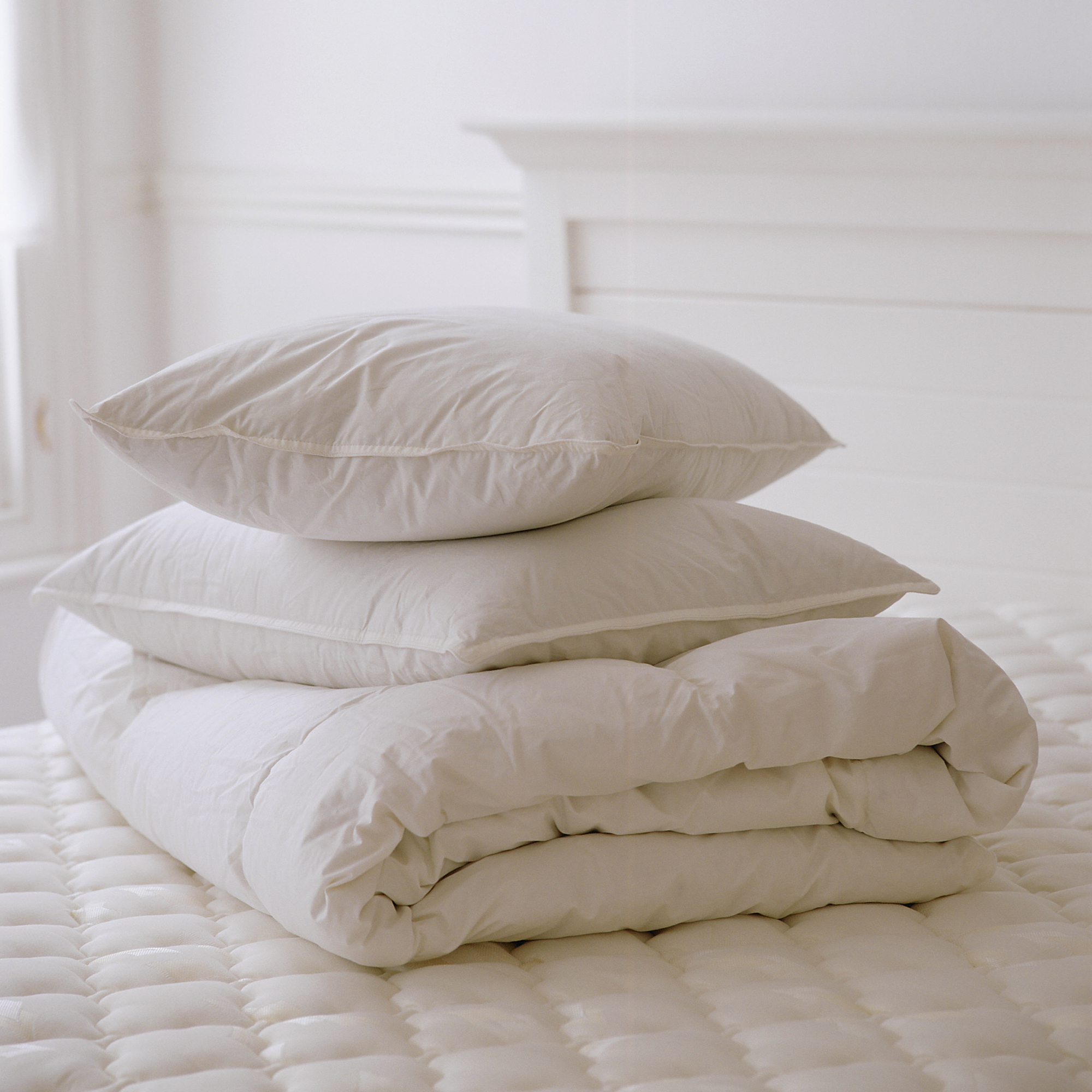
4. Turn it into a pet bed
As someone who shares a home with a dog, I know firsthand that animals aren’t fussy when it comes to where they sleep. Ultimately, they just want somewhere that’s comfortable and warm - and an old duvet could be that place.
And while you may not find your old duvet quite comfortable enough any more, but there's a good chance your pooch will be delighted with some new bedding.
Pop your duvet into an old duvet cover and fold it up in your dog's favourite corner for them to lay dow on, or, if you're handy with a sewing machine, make a bespoke cover and use the duvet filling to stuff it.
5. Cut up some cleaning rags
If you’re constantly on the lookout for cleaning tips, then look no further. Although I swear by these SEEP Eco All Purpose Bamboo Cloths from Amazon for an effective clean every time, I also never miss the chance to make my own cleaning rags and cloths. And if you’re wondering what to do with an old duvet, you might be intrigued to know that you have everything you need at your disposal.
Andrew says, ‘If crafting isn’t your thing, simply cut your old duvet into cleaning rags for a practical and sustainable solution.’ You ust make sure you dry them out before you use them again, as they’re not as absorbent as proper cleaning cloths.
How to dispose of an old duvet
1. Donate it to an animal shelter
While we’d always suggest repurposing an old duvet, we appreciate that this isn’t possible. In that case, one of the best ways to dispose of an old duvet is to donate it to those less fortunate.
'A great way to get rid of your old duvet is to contact your local animal shelter,' says Rachel. 'Many welcome old duvets and bedding to repurpose for pet bedding. Not only will you reduce waste, but you'll be giving a much-deserving cat or dog a cosy place to sleep!'
Yes, your local animal shelter will likely accept your old duvet and will be glad to receive the donation. But if you can't find a shelter nearby, ring up some local animal charity branches instead. RSPCA and Dogs Trust gladly accept old duvets, as do many others. Just make sure you double-check their conditions (if any) before dumping an old duvet on them.
And if you’re really not sure which animal charities will accept old duvets, contact your local vets, who will be able to point you in the right direction.
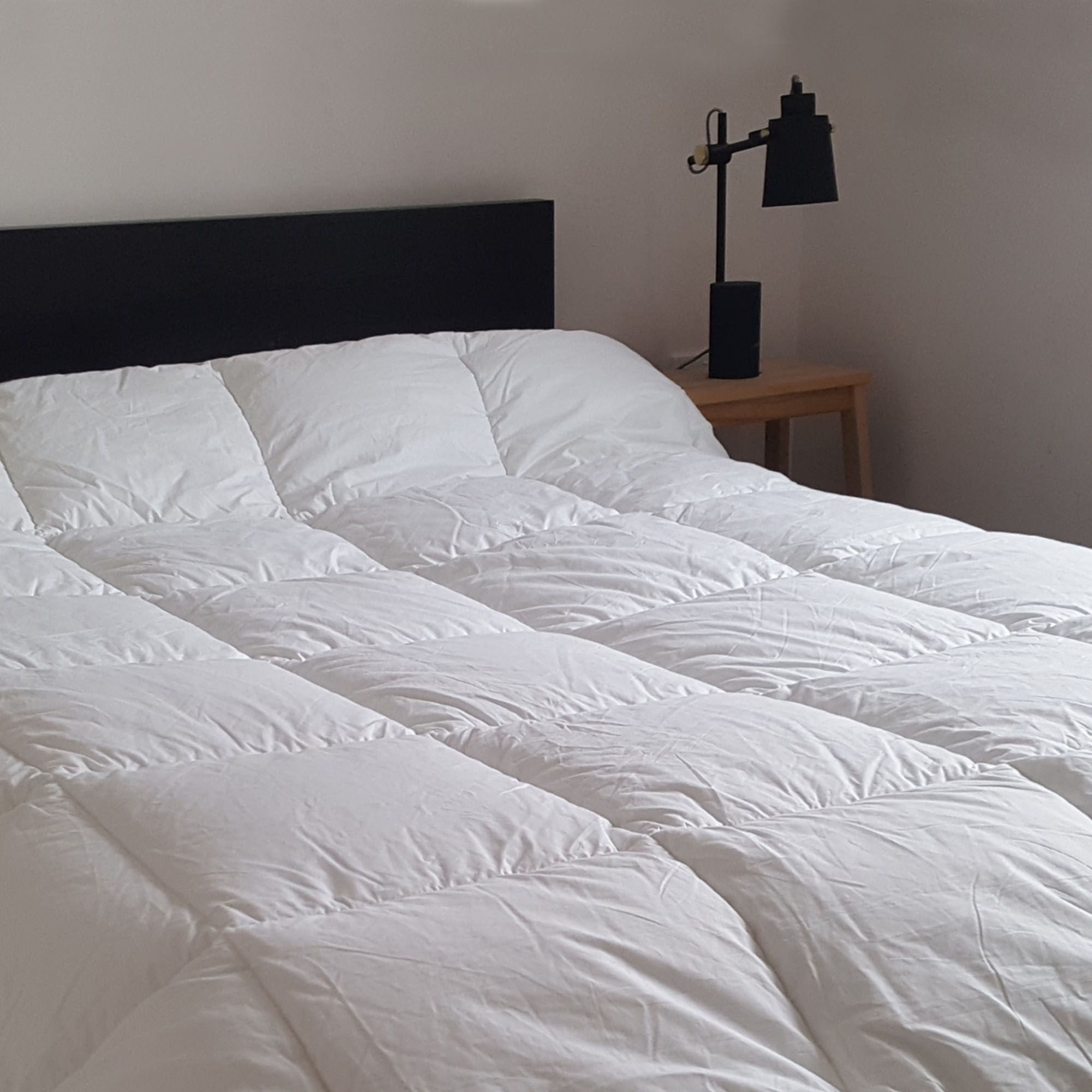
2. Give it to a homeless charity
Disposing of an old duvet can be difficult, as it’s an item that can harbour all kinds of germs and personal bacteria. And while it’s always a good idea to wash a duvet before donating it, this still might not be enough for some places.
Hester Van Hien, a Home Decluttering and Organising Consultant from Tidylicious, explains, ‘Most charity shops don't accept used duvets, but many homeless charities welcome donations of unused duvets.’
However, it’s important to check their requirements before dropping it off, as some homeless charities will only accept donations of old duvets if they have been thoroughly cleaned and meet their exacting requirements. If it’s in poor condition, you may have to go down another route.
3. Take it to a textile recycling scheme
In an effort to reduce the amount of unwanted textiles making their way to landfill, many high street shops are now offering textile recycling schemes that won’t cost you a penny to use. In fact, some places will actually pay you to dispose of your old duvet.
Hester says, ‘You can also take used duvets to H&M. They will recycle your duvet, and you get a voucher to spend in-store.’
This is called the H&M Garment Collecting Programme and requires you to go into the store to recycle your old duvet. And while a similar option is available at Dunelm, the Dunelm Textile Take Back Scheme also gives you the option to send your duvet to them through the post - and it’s for a good cause, too.
Christina Downend, head of climate change and sustainability at Dunelm, explains, ‘At Dunelm, our approach to sustainability is focused on being good and circular. We’re delighted to be partnering with The Salvation Army on this convenient solution so customers can help to reduce unnecessary waste whilst supporting the fantastic work being done across the UK for people in need.’
However, it’s important to note that the duvet should be washed and then bagged up to be dropped off in-store or sent via post to make the most of these schemes.
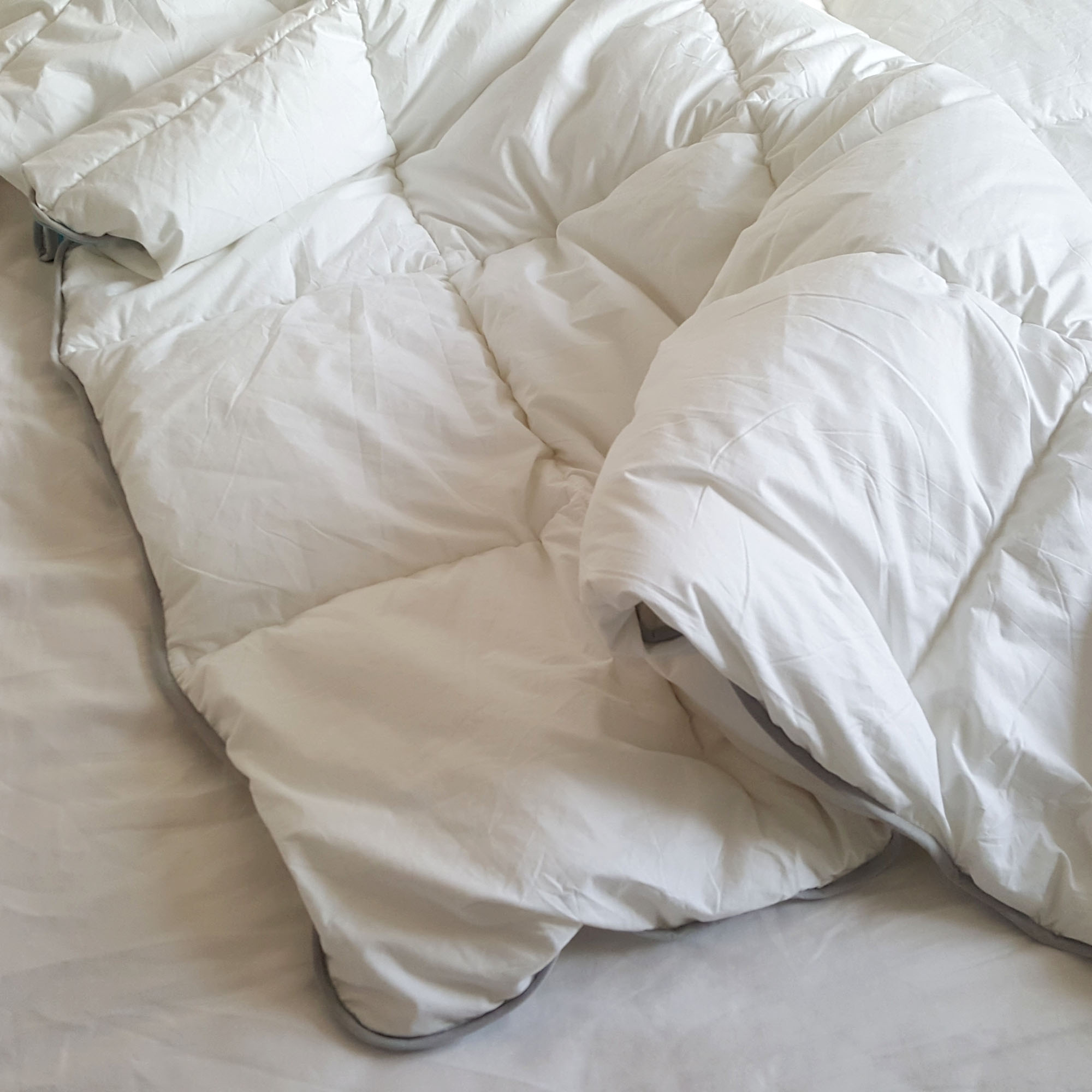
4. Check your local recycling centre
If you’re getting rid of an old duvet after a big decluttering session, you may be wondering how to get rid of items after a declutter. If you genuinely have no use for these items and can’t sell or repurpose them, you may take them to your local recycling or waste centre - and it may be possible to dispose of your old duvet this way, too.
As Ryan Kaila, category manager for waste and recycling at Kingfisher Direct, explains, ‘Duvets are currently unable to be recycled at home in regular recycling bins. Instead, they can be taken to select recycling centres and disposed of in textile recycling bins. It's always best to check with your recycling centre before visiting as some may not accept textiles.’
So, do your research before taking your duvet to the tip. If you don’t, you may be fined or receive an unexpected charge for dumping it.
5. List it for free on a selling site
Alternatively, if it's in good condition, you could offer to 'sell' your unwanted duvet for free on platforms such as Facebook Marketplace or Gumtree.
It's unlikely you'll get any money for your duvet (unless you can prove it's brand new and unused), but this could be a good way of rehoming an unwanted duvet.
Similarly, you could see if your local community has any second-hand fairs or bring-and-buy events coming up. After all, one person's unwanted duvet could be another person's treasure!
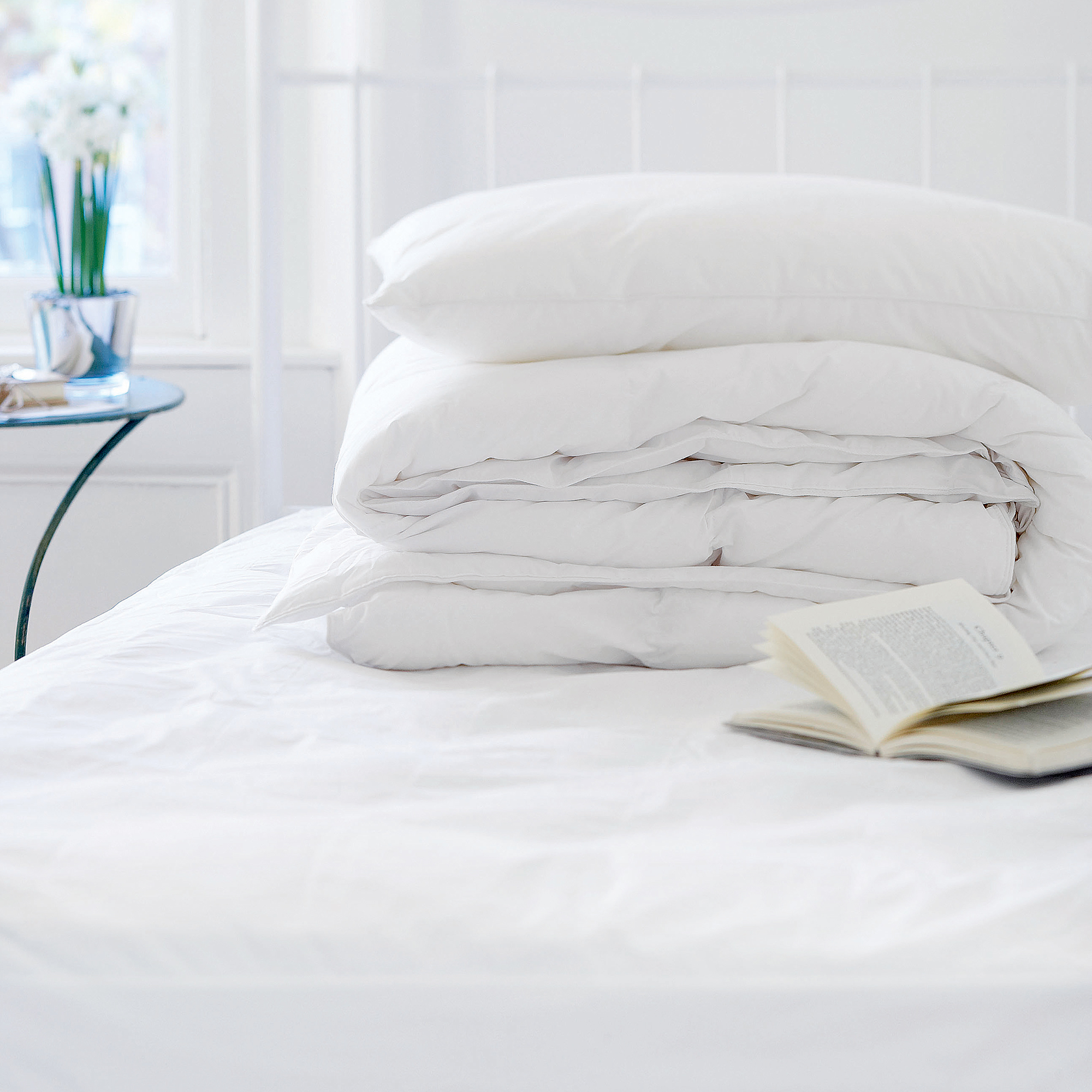
FAQs
Do charities want old duvets?
It's mainly animal charities that will accept old duvets, as they can be reused to make beds for animals being sheltered.
'If anyone is looking to get rid of their old duvet they could contact their local Dogs Trust rehoming centre or other animal rescue,' says Julia Youd, PR Officer, Dogs Trust. 'At Dogs Trust we don’t accept duvets filled with feathers for obvious reasons!'
'There are also a number of charities that are working to supply emergency bedding items to UK homeless and local animal shelters who can be grateful for old duvets and towels,' says Catherine Morris, Managing Director, Tielle Love Luxury. 'As a general rule, the following organisations welcome the following linen items:
- Salvation Army Trading - Bed-linen
- Reuse Network - Cushions, pillows
- Homeless.org - Tool to find local housing shelters for donations
- RSPCA - bedding, towels, blankets
- National Animal Welfare Trust - Blankets, towels, bedsheets
Does the Salvation Army take old duvets?
No, they don’t. Although the Salvation Army will happily accept bed linen and sheets, they do not accept old duvets, mattresses or pillows.
However, you can use the Dunelm Textile Takeback Scheme, which is in partnership with The Salvation Army. This way, you can rest assured that your duvet is being recycled or reused instead of going to landfill. The profits made from this process will then go straight to the charity, so you’re still offering whatever help you can.
Why do charities not take duvets?
Most charities won’t accept old duvets due to hygiene concerns, as it can be difficult to deep-clean a duvet. Because of this, they could harbour all kinds of germs, bacteria, allergens, and more.
Alongside this, they are also bulky to store, which can be an issue for smaller charities with limited storage space.
Many animal charities will accept old duvets, though, and there are many things you can do with an old duvet when you’re done with it - so don’t just throw it in the bin.
Now you know what to do with old duvets, where will yours end up?

Katie has been writing freelance since early 2022, specialising in all things homes and gardens, following achieving a Masters in Media and Journalism. She started out writing e-commerce content for several of Future’s interior titles, including Real Homes, Gardeningetc, Livingetc, and Homes and Gardens. Since then she’s been a regular contributor on Ideal Home’s digital team, covering news topics, how-to guides, and product reviews.
- Lauren BradburyContent Editor (House Manual)